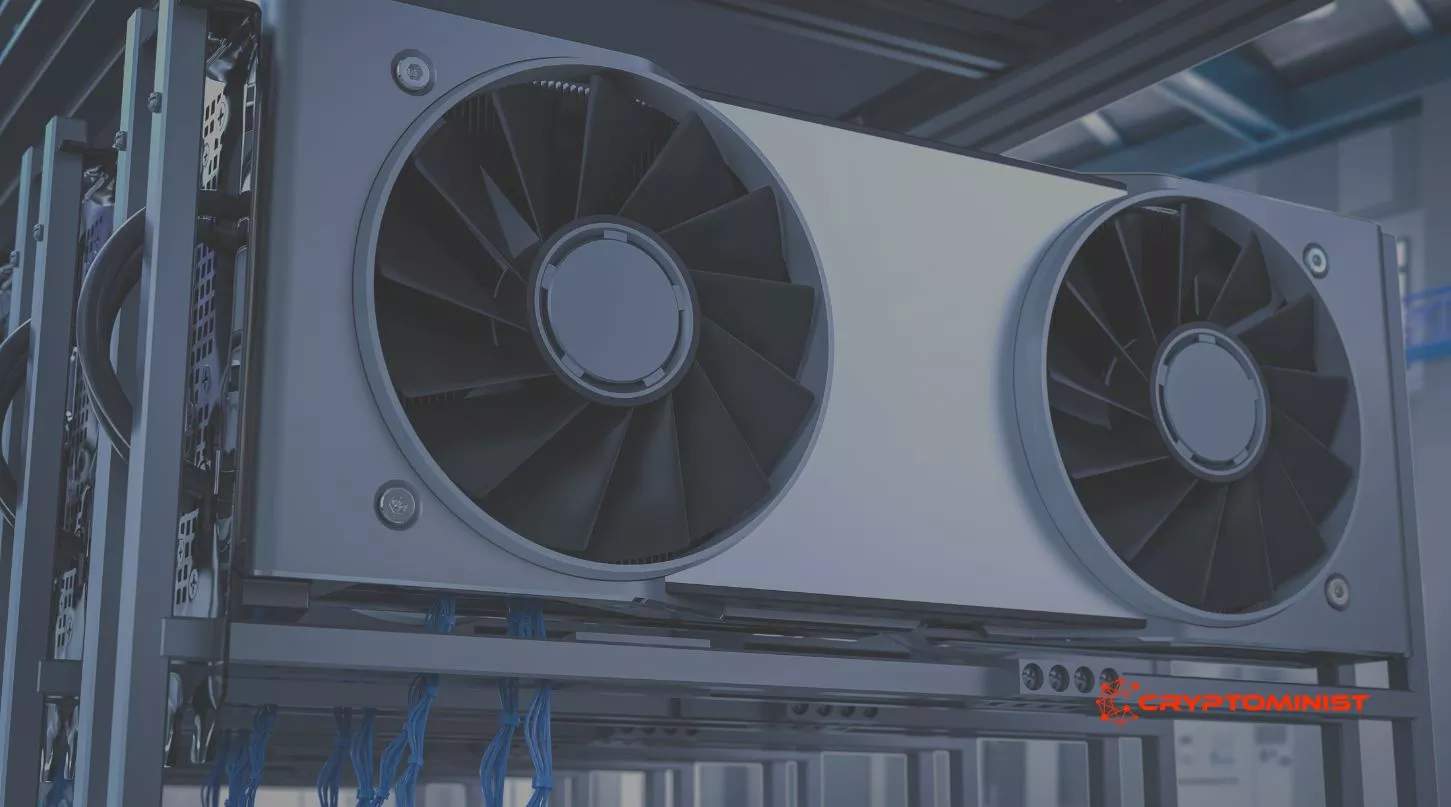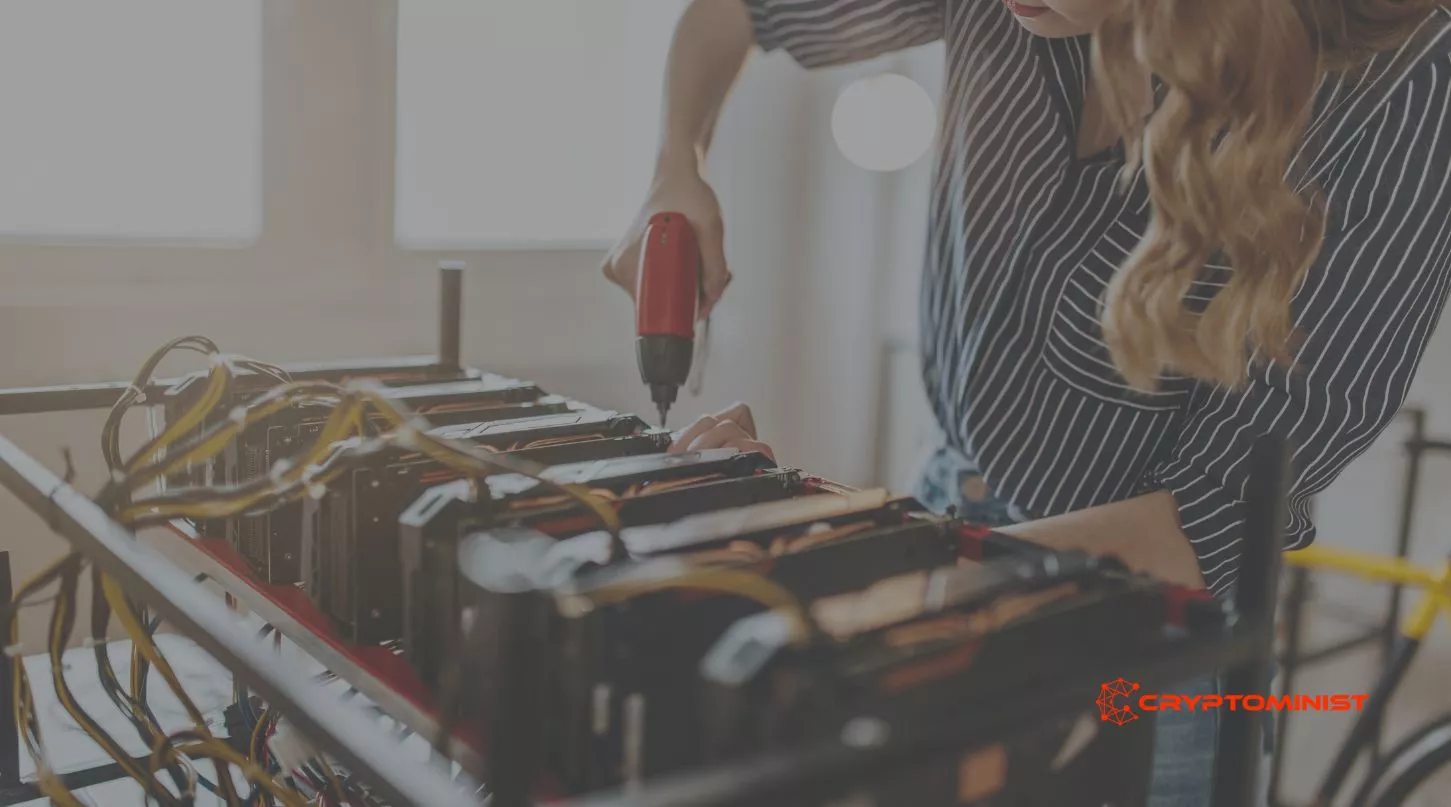Cryptocurrency, with its underlying blockchain technology, has introduced a novel way of transacting and securing financial operations. Central to this technology are the concepts of “mining” and “miners,” which play pivotal roles in maintaining and securing blockchain networks. Understanding the difference between these terms is crucial in comprehending how cryptocurrencies operate.
What Is Cryptocurrency Mining?

Cryptocurrency mining is the process by which transactions are validated and new blocks are added to a blockchain’s public ledger. This process involves solving complex mathematical puzzles known as proof-of-work (PoW) algorithms. The primary function of mining is to secure the network, validate transactions, and maintain the integrity of the blockchain.
Consensus Mechanism:
Mining is closely associated with the proof-of-work consensus mechanism. In PoW, miners compete to solve intricate mathematical problems to validate and add blocks. The first miner to successfully solve the problem has the privilege of adding the next block to the blockchain.
Reward:
Miners are motivated by rewards. In the case of Bitcoin, for instance, miners receive new Bitcoins as a block reward, along with any transaction fees paid by users. This incentive structure is crucial for encouraging miners to participate in securing and maintaining the network.
Mining Hardware and Software:
Miners employ specialized hardware, such as mining rigs or Application-Specific Integrated Circuits (ASICs), to efficiently solve cryptographic puzzles. They also utilize mining software to connect their hardware to the blockchain network. The efficiency of their hardware is critical in the competitive world of mining.
What Are Miners in Cryptocurrency?

Miners are the individuals or entities actively involved in the cryptocurrency mining process. They are the network nodes responsible for validating transactions, solving complex mathematical puzzles, and adding new blocks to the blockchain.
Function:
The primary function of miners is to participate in the computational work required for mining. They compete with other miners to solve cryptographic puzzles, and the first one to succeed earns the right to create and append the next block to the blockchain.
Hardware and Software:
Miners use specialized hardware and software to perform their tasks. The hardware, such as ASICs, is designed for the specific purpose of solving PoW algorithms as efficiently as possible.
Incentive:
Miners are incentivized by the opportunity to earn block rewards in the form of newly created cryptocurrencies and transaction fees. The competitive nature of mining ensures network security and decentralization.
The Role of Miners in Network Security
Miners are not only critical to the creation of new blocks but also to the overall security of the blockchain network. The competitive and decentralized nature of mining helps protect the network from various attacks, including the double-spending problem.
Conclusion
Mining and Miners are fundamental to the world of cryptocurrencies. Mining is the process of validating transactions and adding new blocks to a blockchain, often achieved through the proof-of-work mechanism. Miners, the individuals or entities responsible for this process, use specialized hardware and software to compete in solving complex mathematical problems. They play a critical role in maintaining network security and decentralization.
If you like reading the above article, you may also like reading:
CRYPTOCURRENCY: A BEGINNERS GUIDE
WHAT IS BLOCKCHAIN TECHNOLOGY?
WHAT ARE CENTRALIZED EXCHANGES?